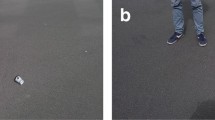Abstract
The classical social theorist Emile Durkheim proposed the counterintuitive thesis that crime is beneficial for society because it provokes punishment, which enhances social solidarity. His logic, however, is blemished by a reified view of society that leads to group-selectionist thinking and a teleological account of the causes of crime. Reconceptualization of the relationship between crime and punishment in terms of evolutionary game theory, however, suggests that crime (cheating) may confer benefits on cooperating individuals by promoting stability in their patterns of cooperation.
Similar content being viewed by others
References
Alexander, R. D. 1987The Biology of Moral Systems. Hawthorne, New York: Aldine de Gruyter.
Axelrod, R. 1984The Evolution of Cooperation. New York: Basic Books.
Barash, D. P. 1982Sociobiology and Behavior, second ed. New York: Elsevier.
Chambliss, W. J., and R. B. Seidman 1982Law, Order, and Power. Reading, Massachusetts: Addison-Wesley.
Cohen, A. K. 1966Deviance and Control. Englewood Cliffs, New Jersey: Prentice-Hall.
Cohen, L. E., and R. Machalek 1988 A General Theory of Expropriative Crime: An Evolutionary Ecological Approach.American Journal of Sociology 94:465–501.
Collins, R. 1982Sociological Insight: An Introduction to Nonobvious Sociology. New York: Oxford University Press.
Daly, M., and M. Wilson 1988Homicide. Hawthorne, New York: Aldine de Gruyter.
1990 Killing the Competition: Female/Female and Male/Male Homicide.Human Nature 1:81–107.
Dawkins, R. 1976The Selfish Gene. London: Oxford University Press.
1980 Good Strategy or Evolutionarily Stable Strategy? InBeyond Nature/Nuture, G. W. Barlow and J. Silverberg, eds. Pp. 331–367. Boulder: Westview Press.
1982The Extended Phenotype: The Gene as the Unit of Selection. San Francisco: W. H. Freeman.
Durkheim, E. 1964aThe Division of Labor in Society. New York: Free Press. [originally published in 1893]
1964bThe Rules of Sociological Method. New York: Free Press. [originally published in 1895]
Gibbs, J. P. 1975Crime, Punishment, and Deterrence. New York: Elsevier.
Gouldner, A. W. 1960 The Norm of Reciprocity.American Sociological Review 25:161–178.
Lopreato, J. 1984Human Nature and Biocultural Evolution. Winchester, Massachusetts: Allen and Unwin.
Lukes, S. 1972Emile Durkheim: His Life and Work. New York: Harper and Row.
Maynard Smith, J. 1974 The Theory of Games and the Evolution of Animal Conflicts.Journal of Theoretical Biology 47:209–221.
1979 Game Theory and the Evolution of Behavior.Proceedings of the Royal Society of London B 205:475–488.
1982Evolution and the Theory of Games. Cambridge: Cambridge University Press.
Merton, R. K. 1968Social Theory and Social Structure. Glencoe, Illinois: Free Press.
Oster, G. F., and E. O. Wilson 1978Caste and Ecology in the Social Insects. Princeton, New Jersey: Princeton University Press.
Parsons, T. 1937The Structure of Social Action. New York: McGraw-Hill.
1951The Social System. New York: Free Press.
1971The System of Modern Societies. Englewood Cliffs, New Jersey: Prentice-Hall.
Sutherland, E. H., and D. R. Cressey 1978Criminology, tenth ed. Philadelphia: Lippincott.
Thornhill, N. W. 1990 The Evolutionary Significance of Incest Rules.Ethology and Sociobiology 11:113–129
Thornhill, R., and N. W. Thornhill 1983 Human Rape: An Evolutionary Analysis.Ethology and Sociobiology 4:137–173.
Trivers, R. L. 1971 The Evolution of Reciprocal Altruism.Quarterly Review of Biology 46:35–57.
1985Social Evolution. Melo Park, California: Benjamin/Cummings.
U.S. Department of Justice 1989Correctional Populations in the United States. Publication NCJ-111611. Washington, D.C.: Bureau of Justice Statistics.
Williams, G. C. 1966Adaptation and Natural Selection. Princeton, New Jersey: Princeton University Press.
Wilson, E. O. 1975Sociobiology: The New Synthesis. Cambridge, Massachusetts: Harvard University Press.
Author information
Authors and Affiliations
Additional information
Richard Machalek and Lawrence E. Cohen are professors of sociology who collaborate in the application of evolutionary and ecological reasoning to traditional domains of sociological research. Machalek’s primary research interests pertain to the evolution of sociality across species lines, and Cohen studies patterns of crime and crime causation.
Rights and permissions
About this article
Cite this article
Machalek, R., Cohen, L.E. The nature of crime. Human Nature 2, 215–233 (1991). https://doi.org/10.1007/BF02692187
Received:
Accepted:
Issue Date:
DOI: https://doi.org/10.1007/BF02692187




